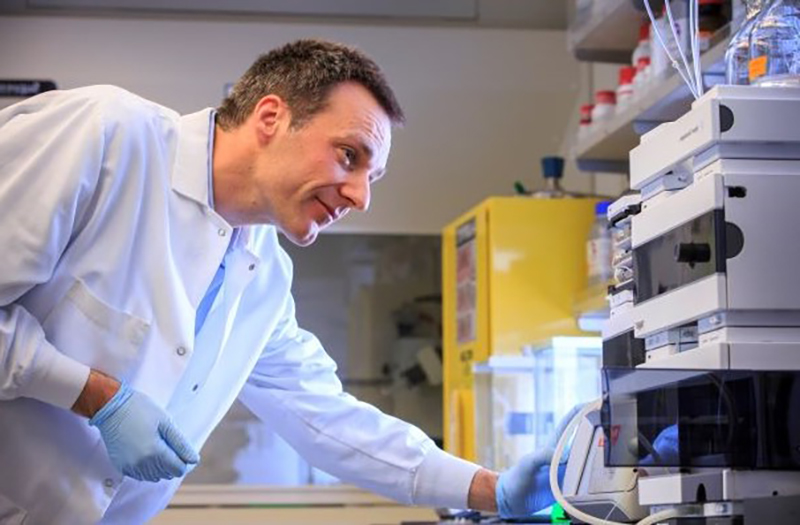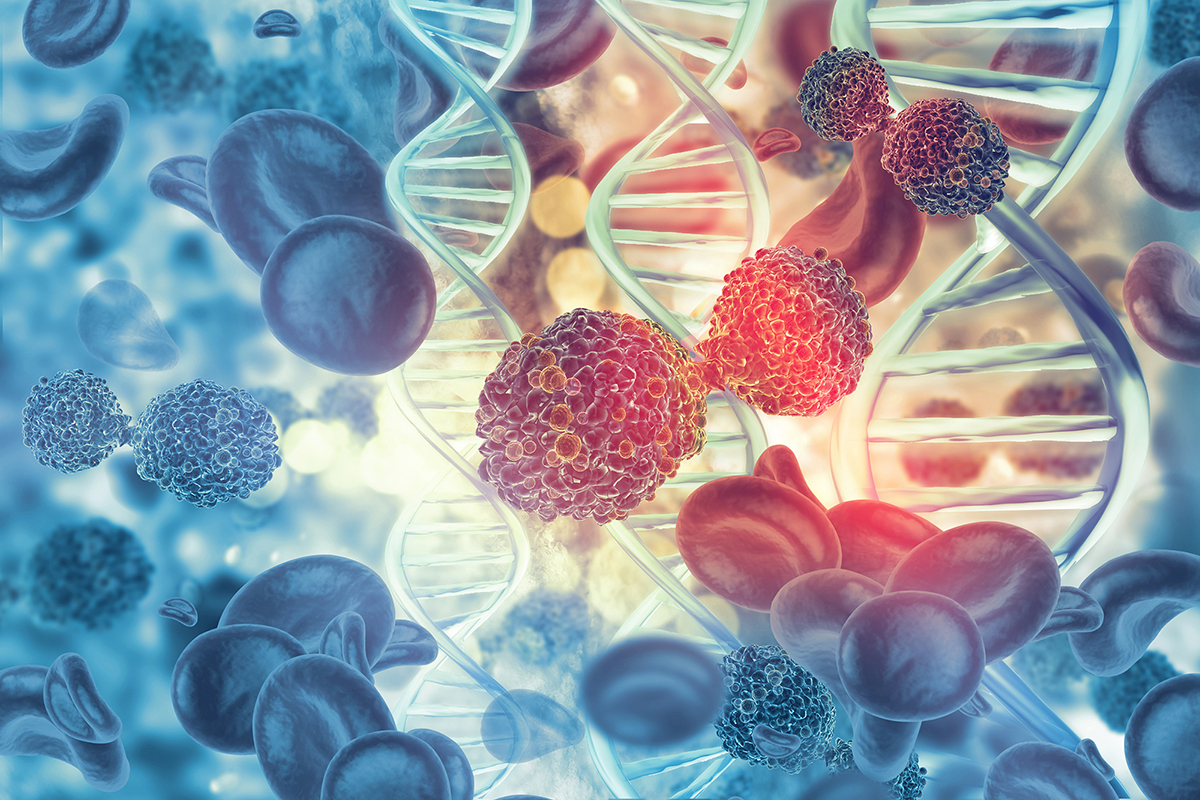
The current process for CAR T-cell therapy involves removing patients’ T cells, adding RNA to target cancerous proteins, and reinserting the enhanced T cells back into the bloodstream.
What if there was a quicker and easier way to strengthen the T cells without extracting them from the patient? Why not save the patient time, money, and discomfort by using injected mRNA to engineer those T cells as they circulate within their body
An Alliance for Cancer Gene Therapy Research Fellow, Matthias Stephan, MD, PhD, who runs the Stephan Lab at Fred Hutchinson Cancer Research Center in Seattle, Wash., is invested in creating injectable mRNA nanoparticles to help T cells battle cancer.
This could be a way to improve CAR T-cell therapy, a type of cancer cell and gene therapy already approved for many blood malignancies and in testing for solid tumors.
Stephan Lab at Fred Hutchinson Cancer Research Center

Dr. Stephan is one of the many brilliant and trailblazing scientists supported financially by Alliance for Cancer Gene Therapy. He received grant funding from Alliance for Cancer Gene Therapy beginning in 2018 to create nanoparticles loaded with therapeutics that can reprogram T cells circulating in the bloodstream. These T cells become reprogrammed as disease-specific CAR T cells or T-cell receptors, with variances depending on the target cancer and the injected mRNA.
The nanoparticles are also coated with antibodies that bind to the circulating T cells, which allows targeted delivery of the mRNA. Circulating T cells download the mRNA which reprograms the T cells as CAR Ts that can find and attack the cancer cells.
Dr. Stephan reported early success in pre-clinical models using mRNA injections to create CAR T cells for prostate cancer, leukemia and hepatitis hepatocellular carcinoma. In fact, the research models’ survival time doubled for prostate cancer and leukemia.
The next step is applying this research in human studies. The research team is “currently working with Sanofi to translate this technology into clinical studies,” Dr. Stephan said.
How long does standard CAR T-cell therapy take?
According to the American Society of Clinical Oncology, CAR T-cell therapy takes 3-6 weeks. The process begins with apheresis, which involves removing a patient’s blood and separating T cells. These cells are sent to a laboratory to add chimeric antigen receptors. Injecting the cells back in takes 30-90 minutes, according to the Mayo Clinic.
An injection of mRNA can enhance the T cells without needing to remove them from the bloodstream or add them back in. This eliminates multiple steps in the CAR-T therapy process, saving the patient precious time.
University of Pennsylvania research into injectable mRNA
In separate research, Perelman School of Medicine (University of Pennsylvania) researchers conceptualized a way to produce the CAR T-cells inside the patient, or “in-vivo”. Drew Weissman, MD, PhD, is the Roberts Family Professor in Vaccine Research at University of Pennsylvania. He co-authored the injectable therapy study at Perelman School of Medicine.
“Standard CAR T-cell technology involves modifying patients’ T cells outside the body, which is expensive and difficult to scale for common diseases or for use in less wealthy countries. Making functional CAR T cells inside the body greatly extends the promise of (this science).” — Drew Weissman, MD, PhD
Dr. Weissman and his team at the University of Pennsylvania developed a single injection of messenger RNA (mRNA) within nanoparticles. The mRNA carried instructions necessary to reprogram T cells to generate therapeutic CAR T cells inside the body. While this particular research is focused on preventing heart failure, the science may be translational and apply to cancer treatment.
How you can help push CAR T-cell therapy forward
Alliance for Cancer Gene Therapy provided early funding to studies involved in creating the original CAR T cells for blood cancers. Now the Alliance is focused on solid tumors, like prostate cancer, pancreatic cancer and brain cancer.
By funding groundbreaking research like Dr. Stephan’s in-vivo CAR T-cell therapy at Fred Hutchinson Cancer Research Center, Alliance for Cancer Gene Therapy can help bring cell and gene therapy to thousands more cancer patients.
We’ll gain ground and provide more grants to the top cancer research centers with your donation today. Help us create life-saving cell and gene therapies for cancer patients in need of other treatment options.
Page sources
- Vaccine-like mRNA Injection Can Be Used to Make CAR T cells in the Body. Penn Medicine. Retrieved from: https://www.pennmedicine.org/news/news-releases/2022/january/vaccine-like-mrna-injection-can-be-used-to-make-car-t-cells-in-the-body. Accessed: 01/19/2022.
- Nanoparticles with a mega impact: how injectable mRNA fights cancer. Fred Hutchinson Cancer Research Center. Retrieved from: https://www.fredhutch.org/en/news/spotlight/2022/01/ccg-parayath-naturecomm.html. Accessed: 01/19/2022.
- How Does CAR T-Cell Therapy Work in Treating Cancer? American Society of Clinical Oncology. Retrieved from: https://www.cancer.net/blog/2021-06/how-does-car-t-cell-therapy-work-treating-cancer. Accessed: 01/19/2022.
- Frequently asked questions. Mayo Clinic. Retrieved from: https://www.mayoclinic.org/departments-centers/car-t-cell-therapy-program/sections/gnc-20405547. Accessed: 01/19/2022.



